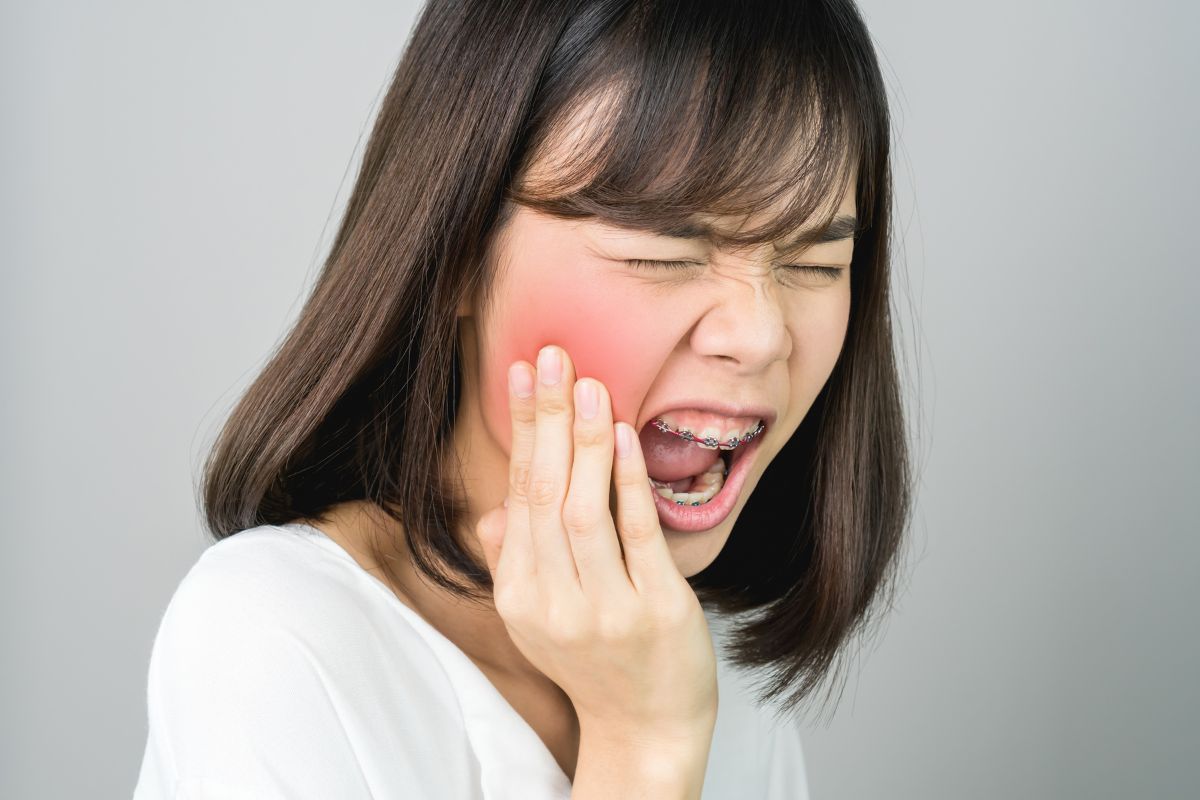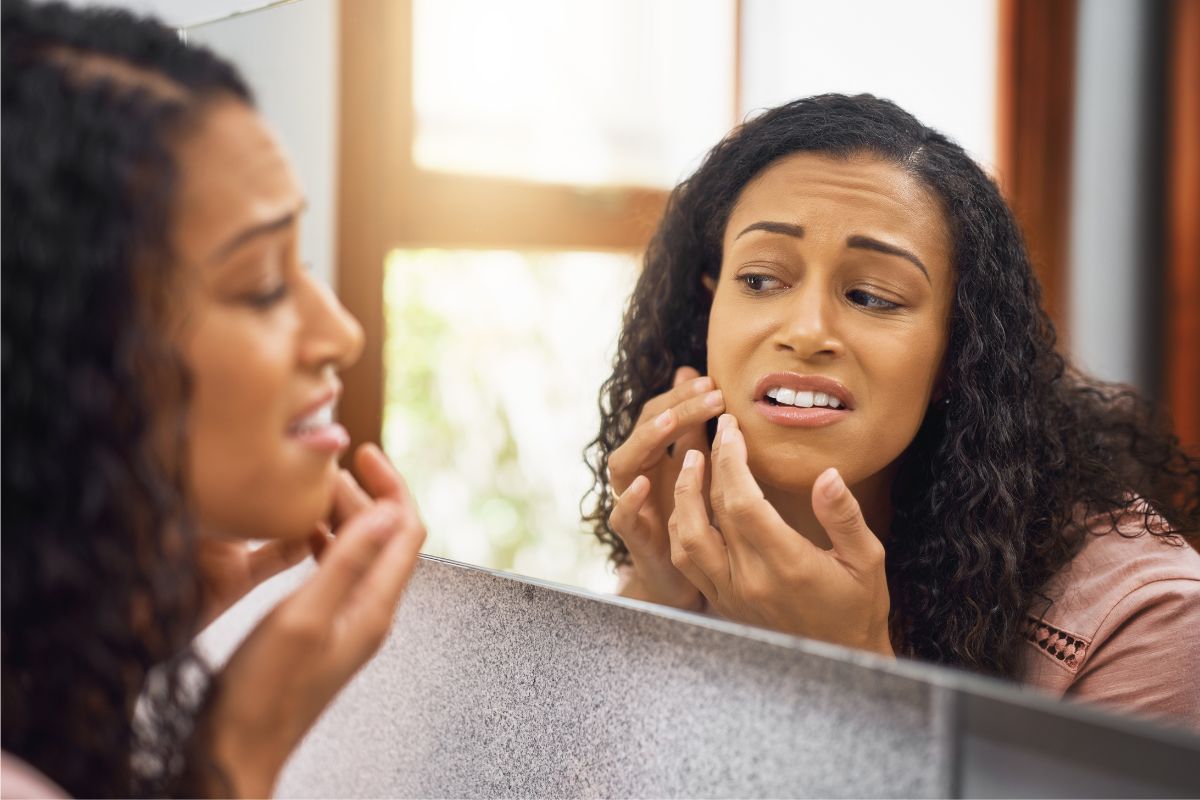
Imagine this: you wake up in the middle of the night with throbbing tooth pain. The discomfort is intense, and you can’t get back to sleep. Unfortunately, this happens to many people, and tooth pain at night can feel even worse than during the day. Lying down often intensifies the pressure on your teeth, and there’s no easy way to get immediate help when most dental offices are closed.
In such a situation, knowing how to handle the pain becomes essential. This blog will guide you through immediate ways to deal with tooth pain at night and what to do in dental emergencies until you can see a dentist.
Common Causes of Tooth Pain at Night
Tooth pain at night can result from various dental issues. Below are some of the most common causes:
- Tooth Decay and Cavities: Untreated cavities can worsen, causing pain that often intensifies when lying down. The pressure from your body position can increase the sensitivity of the damaged tooth.
- Gum Disease: If your gums are infected or inflamed, the pain may worsen at night due to a reduction in blood flow when you lie down. This can intensify swelling and discomfort.
- Tooth Sensitivity: Temperature changes or consuming certain foods can trigger sensitivity, especially at night when your teeth are more vulnerable due to reduced saliva production.
- Bruxism (Teeth Grinding): Many people grind their teeth at night. This puts unnecessary pressure on your teeth, causing pain, soreness, and even tooth damage.
- Abscess or Infection: A severe infection or abscess can cause sharp, throbbing pain that often becomes unbearable at night. Such infections may lead to fever or swelling and require immediate attention.
Immediate Relief Tips for Tooth Pain at Night
When tooth pain strikes at night, there are several remedies you can try at home to find relief until you can see a dentist:
- Painkillers: Over-the-counter medications such as ibuprofen or acetaminophen can help manage pain. Be sure to follow dosage instructions and avoid taking these for extended periods.
- Cold Compress: Applying a cold compress to the outside of your cheek near the painful tooth can reduce swelling and numb the area. This simple remedy works well to control pain in a pinch.
- Saltwater Rinse: Gargling with warm salt water can help alleviate inflammation and cleanse the area, potentially easing the pain. Mix a teaspoon of salt in warm water and rinse for about 30 seconds.
- Elevating the Head: Sleeping with your head elevated can reduce the pressure on your tooth, minimizing pain. Prop your head up with extra pillows to help alleviate discomfort.
- Clove Oil: Clove oil contains eugenol, a natural pain-relieving compound. Apply a small amount to a cotton ball and gently place it on the painful tooth.
- Avoid Certain Foods and Drinks: Avoid very hot, cold, or sugary foods and beverages, as they can aggravate the pain. Stick to soft foods and drink room-temperature liquids until you can get professional care.
When to Seek Emergency Dental Care?
It’s important to recognize when your tooth pain is a true dental emergency. Here are some signs that indicate you should seek immediate dental care:
- Severe Pain: If the pain is unbearable and not responding to over-the-counter pain relief, it’s time to seek professional help. Severe pain often points to a deeper issue, such as infection or abscess.
- Swelling and Fever: Swelling around the tooth or in your jaw, combined with a fever, may indicate an infection. This requires prompt treatment to avoid complications.
- Visible Abscess: If you notice a visible bump or pus near the painful tooth, it could be a dental abscess. Abscesses are serious and require immediate medical attention to prevent the infection from spreading.
- Knocked-Out Tooth: If your tooth has been knocked out due to an injury, time is critical. Visit an emergency dentist immediately for the best chance of saving the tooth.
- Dental Urgency vs. Emergency: While some issues can wait for regular office hours (like a mild toothache), others, such as fractures or abscesses, should be addressed right away. If in doubt, always err on the side of caution and contact an emergency dentist.
- How to Find an Emergency Dentist: Many cities have 24-hour emergency dentists or urgent care clinics that treat dental emergencies. Search online or call your regular dentist to find an after-hours number or an emergency service. Make sure to have these numbers saved for future use.
Preventing Future Tooth Pain
While dental emergencies can happen to anyone, there are steps you can take to prevent tooth pain and keep your smile healthy:
- Regular Check-ups: Visiting your dentist for regular check-ups is key to catching issues early. Early treatment of cavities, gum disease, and other problems can prevent pain and complications down the line.
- Good Oral Hygiene Practices: Brush twice a day with fluoride toothpaste and floss daily. This will help keep cavities, gum disease, and tooth sensitivity at bay.
- Night Guards for Bruxism: If you grind your teeth at night, a night guard can protect your teeth from damage and prevent the discomfort caused by bruxism.
- Dietary Tips: Avoid foods and drinks that are high in sugar and acid, as they can contribute to tooth decay and sensitivity. Eat a balanced diet rich in vitamins and minerals to maintain strong teeth.
Tooth pain at night can be a frightening experience, but understanding how to manage it can provide relief until you can see a dentist. Use the tips provided to alleviate discomfort, and keep an eye out for signs that may require emergency care.
Remember, if you experience severe pain, swelling, or signs of infection, don’t wait—seek help from our emergency dentists as soon as possible. Schedule regular check-ups and maintain good oral hygiene to prevent future issues.



